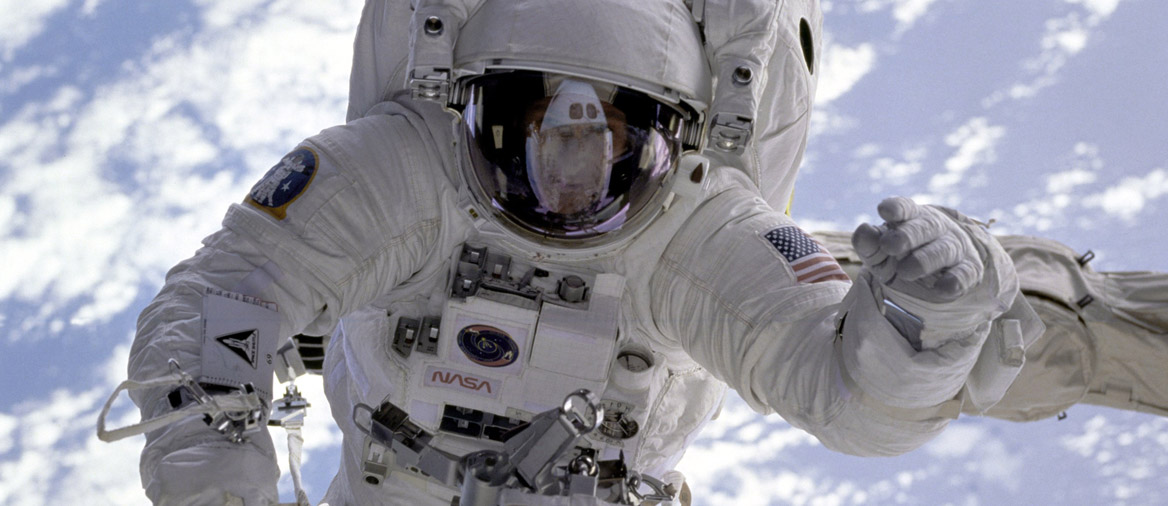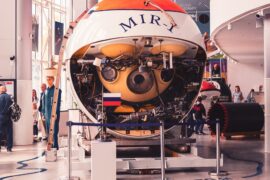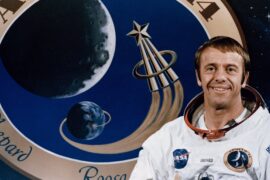On April 12, 1961, the Russian cosmonaut Yuri Gagarin became the first human to journey to outer space. The age of space exploration started that day.
But why are we so interested in spending so much time, money, and resources to visit chunks of rock that are most likely empty? Why purposely go to environments that are dangerous and even deadly to humans?
Well, the answer is simple.
The benefits of space exploration outweigh the dangers of it. Becoming a space-faring civilization is the most important goal we must achieve for humanity to survive long-term.
In this article, we’ll the major 10 benefits of space exploration. These include medical, technological, and economic benefits. They are listed in no particular order of importance.
Economic benefits of space exploration
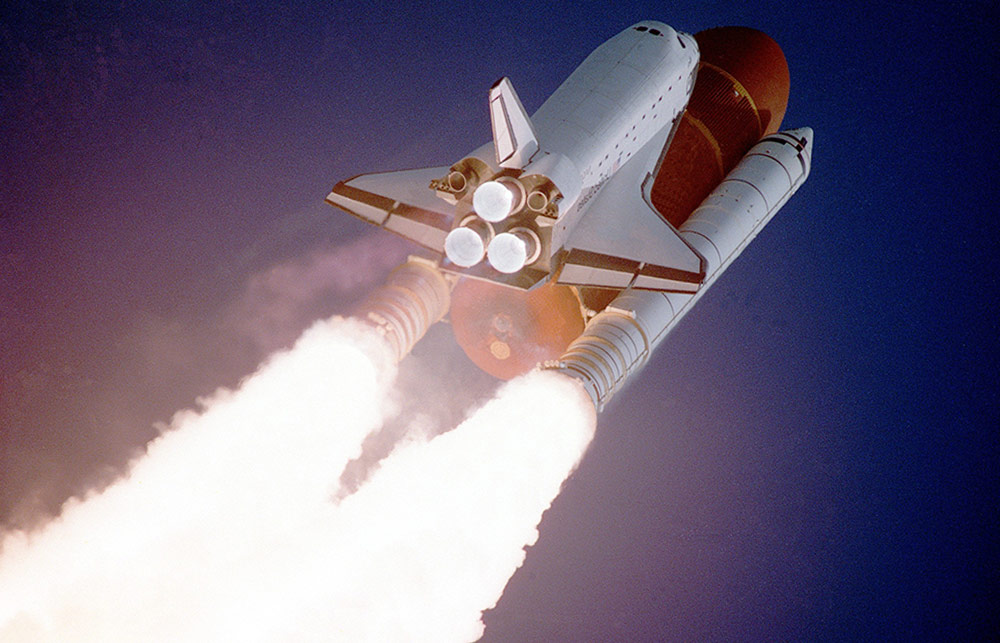
10. Creation of STEM Jobs
NASA employs more than 18,000 people. SpaceX more than 12,000. And that’s not counting outside contractors with whom those numbers at least double.
A lot of those jobs are positions for engineers, data analysts, mathematicians, physicists, astronomers, doctors, biologists, geologists, etc.
Space exploration is one of the industries that require the largest percentage of STEM (Science, Technology, Engineering, and Mathematics) jobs.
These positions require highly qualified people to fill them but are also some of the highest-paid jobs in the market. The average entry-level STEM job pays approximately 26% higher than non-STEM fields for college graduates.
So, in summary, the growing space industry creates high-paying jobs.
9. Space mining and asteroid capturing
In space, there are many valuable resources in big quantities that are scarce on Earth. For example, the asteroid Pysche 16 is estimated to contain over $700 quintillion dollars worth of gold. Enough to give each person on Earth more than $100 billion dollars. And that’s not even close to being the most valuable object.
Economists have predicted the space mining industry will create the first trillionaire.
But the real benefit for the advancement of humankind might come from a much more unlikely substance. Water.
Learning to capture asteroids full of ice and crashing them safely, could help us solve one of the biggest challenges of inhabiting planets. The lack of liquid water.
8. Space tourism industry
The biggest dream some of us have is being able to take a trip to outer space. It is the ultimate destination. And because unfortunately, not many people can become astronauts, the rest of us will have to wait until the space tourism industry develops a bit more. It is still too expensive to go to space.
In 2021, a trip in one of the first trips offered by Blue Origin, the space company created by Jeff Bezos, was auctioned. The winner paid $28 million for the privilege to be one of the first space tourists.
As reusable rockets improve, the costs of these trips will become significantly lower. Hopefully one day they’ll be within the reach for all of us.
The space tourism industry will indubitably create tens of thousands of jobs. From travel agents to pilots, to manufacturing jobs in the factories that make the rockets.
Medical benefits of space exploration
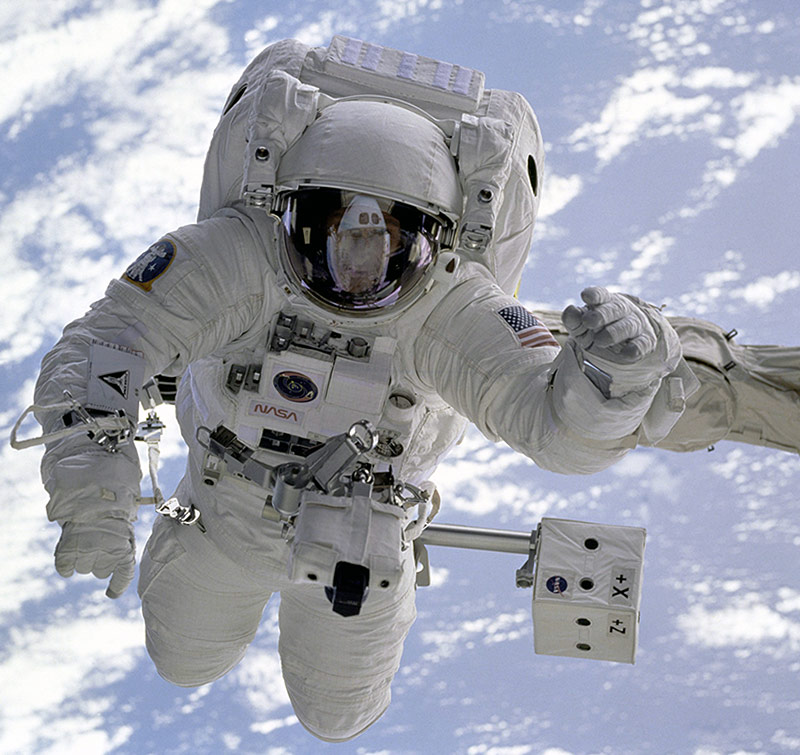
7. Learning more about the human body
Studying the effects of space travel has helped us better understand the human body. For example, analyzing the effects of zero-gravity on blood circulation led to many discoveries on how arteries age and how to prevent some types of heart failure.
The experiments and measurements of bone strength and bone loss in astronauts have helped doctors better understand osteoporosis and other bone diseases.
The medical benefits of space exploration extend to pretty much every area of the human body. From muscle physiology to mental health.
6. Improving medical assistance in remote areas
One of the biggest challenges of space travel is solving problems when you can’t send any new equipment, experts, or any other help. You have to fix things with whatever is available on the ship.
So what happens when there’s a medical emergency on a spaceship?
This question has led doctors and engineers to develop tools and machines that can perform medical procedures and diagnostics remotely.
That same technology has many applications on Earth too. It allows doctors to assist patients that are located in remote rural areas or villages that are difficult to access.
5. Development of new medical procedures
All this knowledge that has been collected has yielded many developments in medical procedures.
Some examples of medical advancements that have been created thanks to space exploration are:
- Heart pumps
- Programmable pacemakers
- Fiber-optic catheters to perform laser angioplasty
- Digital imaging breast biopsy used to detect breast cancer
- Fetus monitoring transmitters
- Cooling suits made to lower a person’s temperature
The NASA spinoff site keeps track of some of the health and medicine advancements that have been made possible thanks to space exploration.
Other benefits of space exploration
4. Development of new technologies
The space race is one of the eras that has birthed the most technological advancements in the shortest period of time. It is probably only third behind both world wars. Throughout the years, companies have found consumer uses for many of these developments. To this day we still use them in our day-to-day lives without even knowing that some NASA engineers originally developed them for the Apollo program that took humankind to the Moon.
Listing all the technologies that have been derived from space exploration would be impossible, but here are some notable examples.
- Vacuum sealed food.
- Shock-absorbing sneaker soles. That’s right, the comfy running soles were originally developed for astronaut spacesuits.
- Fireproof materials used in firefighter uniforms
- Quake-proofing technology used in bridges and buildings to resist Earthquakes
- Heat-repellent blankets. There’s a reason why they are also known as “space blankets”. Fun fact, they can also double as DIY telescope covers.
- Rechargeable hearing aids
- Autonomous drone navigation
- Modern vacuum cleaners
- The lenses used in “action cameras”
- Water purification technology
As you can see, it is important for us to keep pushing the limits of space exploration. Who knows what kind of new technologies could be developed that will make our lives easier in the future.
3. Inspire the next generation
Space exploration sparks the curiosity of children who will become the next Elon Musk, Neil Armstrong, Sally Ride, or Guion Bluford.
It inspires students to dream and gets them interested in science and technology.
Not only is this good for them as STEM jobs can secure them a comfortably future, but it also helps humanity. It is through invention, research, and knowledge that humanity will be able to overcome the big challenges it will be facing in the future.
2. Protecting Earth
We only have one planet where we can live without the help of spacesuits. It would be nice to keep it in good condition until we can figure out a way to find other habitable planets or terraform others.
To do that, we need to learn more about the dangers of space. We know about extinction events like asteroids, but that’s not the only potential threat to our survival. Solar flares, radiation, magnetic pole changes, and greenhouse effects are just some of the challenges Earth might face at some point.
Exploring space is the only way we will learn more about them so we can develop strategies and technology that could help save us from such events.
1. Increase humanity’s odds of survival
There’s one thing we are certain of about when it comes to space. If we – humanity – don’t become a space-faring civilization. We will become extinct sooner or later.
Earth will eventually become uninhabitable and will probably be devoured by the Sun as it expands during the later years of its life cycle. And that’s hoping nothing else happens before, like an asteroid impact, an ice age, atmospheric loss, climate change, or any other potential threats that could wipe us out, to put it bluntly.
Space exploration is not a luxury for the richest nations. It should be a worldwide priority and every country needs to come together in this effort. It is simply the only way we can hope to survive as a species.
We don’t know if we have millions of years or hundreds of years before any of these events happen. So it’s better to get started today.
Summary
- Space exploration can be the doorway to many growth industries such as asteroid mining or space tourism.
- Many medical advancements have been made possible thanks to the aerospace industry.
- Space exploration is critical and the only path to the survival of the human race.
Enjoyed this article?
Get daily 10-minute PDFs about astronomy to read before bed!
Sign up for our upcoming micro-learning service where you will learn something new about space and beyond every day while winding down.

